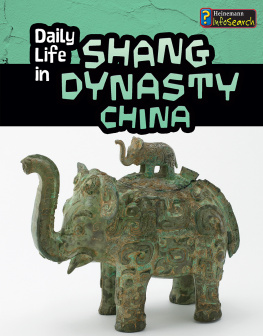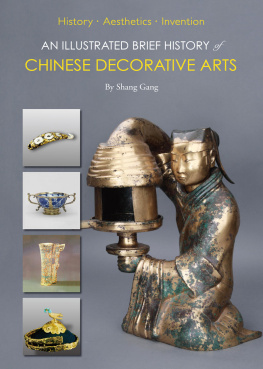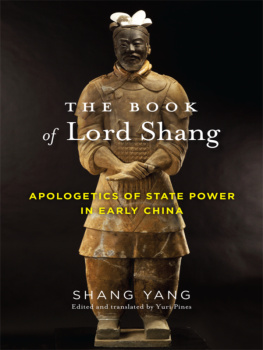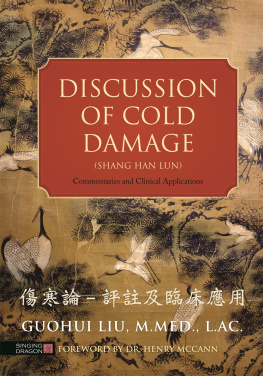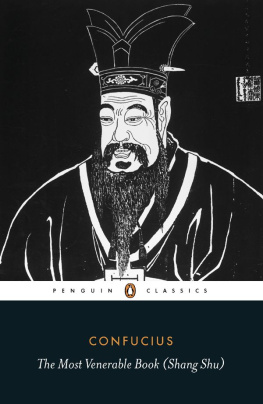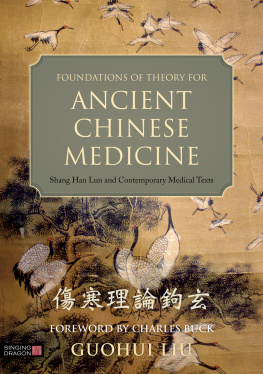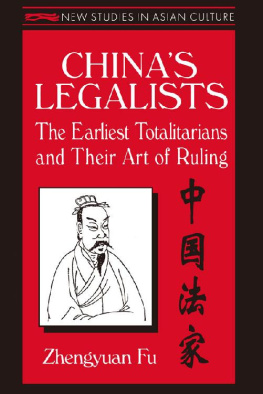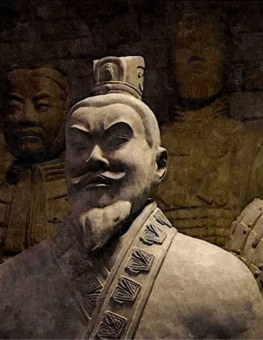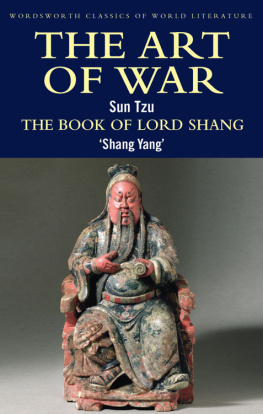The Book of the Lord of Shang
State Terror and the Rule of Law
Translators Introduction
Philosophy may take many forms, depending on the purpose for which it is pursued. The predominant form of philosophy in China has traditionally been political philosophy, focusing on the practical problems of leadership and social order. These central concerns spawned a wide spectrum of doctrines relating to nature and culture. Some of the most influential of these doctrines emerged from a radical school of thought known in Chinese as Fajia, or Legalism, which proposed the establishment of a new order under a uniform and impersonal rule of law.
The Book of the Lord of Shang is a classic of Legalism, perhaps best known for its critical role in the founding of the Chinese empire and the organization of the bureaucratic state. This famous book is named for its reputed author, Gongsun Yang, aka Wei Yang, a political reformer who was entitled the Lord of Shang in honor of his public service as architect of the new order. Although it is more than two thousand years old, his book describes doctrines and policies whose patterns have been repeated through history.
Gongsun Yang lived in the 4 th century B.C.E., during the chaotic Warring States era of Chinese history. He distinguished himself as advisor to Duke Xiao (Hsiao) of the state of Qin (formerly spelled Chin, whence the English name China), who had originally hired him as a strategist to regain lost territory. Engineering two major legal reforms, in 359 and 350 B.C.E., Gongsun Yangs innovations not only restored the domain of the state of Qin, but also paved the way for the eventual expansion of the new Qin regime into an empire encompassing all the ancient Chinese states and beyond.
Legalism proposes an absolute rule of law administered by a totalitarian state operating impersonally under a central authority. In various guises it has not only informed later Chinese imperial governments, but also provided original models for certain aspects of modern socialist and communist thought and practice in China, including emphasis on primary production and military service, state control of commerce and industry, and a penal system emphasizing deterrence by means of deliberately disproportionate punishment amounting to a policy of state terror. The modern practice of the hard strike crackdown campaign is an example of an echo of that ancient institution.
While Legalism played a critical role in the origin of the Chinese empire, the express purpose of The Book of the Lord of Shang was to remedy conditions of state decay, including rampant poverty, crime, and loss of territorial integrity. The policies of Gongsun Yang facilitated prosperity, order, and military power, but the Legalist system of state terror did not dissolve of itself, as the Lord of Shang proposed it should if it were completely successful. Instead, the Legalist approach to order, expansion, and empire left a lasting legacy, weaving a pattern of militarism and penal law into the tapestry of Chinese political history.
Chinese philosophy has been marked by a central concern with political life from earliest times, particularly under the influence of problems associated with power struggles and endemic warfare, such that rationales and requirements of rulership and organization are built into the very foundations of traditional Chinese philosophy. While these have been elaborated into a variety of ideologies, certain essential concepts generally underlie and inform the universe of Chinese political and social doctrines.
Perhaps the most elemental basis of Chinese philosophy is the traditional idea expressed in Chinese as tian ren heyi, "Unity of Heaven and Humanity." This concept has historically conditioned the preeminent position of politics in Chinese philosophy, as well as the power and privilege associated with the leadership of the Chinese state. While overtly religious aspects of this belief were submerged into a secular cult of state in China, a survival of this antique may be observed in the traditional Shinto assertion of the divinity of the emperor of Japan.
The idea of continuity between divine and human realms may be referred to as primitive insofar as its roots are to be found in the shamanic, magical element of tribal leadership in high antiquity. Over time, it would seem, this dynamic thaumaturgic function was replaced, at least in the person of the ruler, by a more ritualized sacerdotal role. Another aspect of the idea of unity of Heaven and Humanity was the notion that ancestral spirits continued their involvement with worldly affairs after death, and so their propitiation was required for the prosperity of the people.
As tribes and clans constructed shrines and carried out rituals for this purpose, the pattern of people clustering behind a master of ceremonies connecting them to a higher order of potency fostered the development of exalted ideas of rulership amenable to the evolution of absolutism, despotism, and tyranny. Eventually the emperor of China would be designated the Son of Heaven, betokening by then not only his sacerdotal role as propitiator-in-chief of the creator and divine progenitor of the human race, but also his posture of power as supreme potentate privileged above all people.
Spirits of nature also inhabited the invisible world to which shamans and magicians allegedly had the access that underlay their position as primitive potentates. Thus the emergence of human leadership in classical Chinese political mythology is also associated with discovery of laws of nature enabling civilization to develop. The origins of animal husbandry, agriculture, medicine, mathematics, and writing are all attributed to ancient sages supposed to be kings among ancestors of the Chinese people.
In this way the ideal of human leadership in Chinese political philosophy came to imply a central competence superintending the complex continuity of supernatural, social, and natural phenomena. This is embodied in another primary concept of Chinese philosophy, known as san yuan or Three Bases, referred to as tian di ren, or Heaven, Earth, and Humankind.
It might be said that the essential function of the ideal ruler, in these terms, was to maintain the proper balance and harmony among these three dimensions. For this reason natural disasters were viewed as a reflection on the reigning potentate, while successful management of such a disaster was a prime qualification for leadership. This is typified in the traditional Chinese version of the Flood theme, wherein the hero Yu who saved the heartland from the Flood was designated king for his service to the whole civilization.


